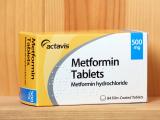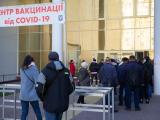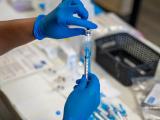An observational study of Italian healthcare workers infected with SARS-CoV-2 who didn't require hospitalization suggests a link between two or three doses of vaccine and a lower prevalence of long COVID.
In the modeling study, published late last week in JAMA, researchers in Milan studied 2,560 workers at nine healthcare facilities from March 2020 to April 2022. All healthcare workers were mandated to receive three doses of the Pfizer/BioNTech mRNA COVID-19 vaccine in 2021. And all were screened for COVID-19 once a week or every 2 weeks and when they developed symptoms or were exposed to the virus.
Participants completed a survey from February to April 2022 about their demographic factors, underlying conditions, and COVID-19–related symptoms during and after their infection. Long COVID was defined as the presence of at least one symptom for more than 4 weeks.
Odds of long COVID fell to 16% after third dose
Of the 2,560 workers, 739 (29%) tested positive for COVID-19, 89 of whom had no symptoms and 229 (31%) of whom had long COVID.
Long COVID prevalence changed over the course of the pandemic, from 48.1% in the first wave (February to September 2020) with the wild-type virus, to 35.9% in the second surge (October 2020 to July 2021) amid the Alpha variant, and 16.5% in the third wave (August 2021 to March 2022) with Delta and Omicron.
The number of vaccine doses was linked to lower prevalence of long COVID, at 41.8% of a reference group of unvaccinated participants, 30.0% after one dose, 17.4% after two doses, and 16.0% after the third dose. Risk factors for long COVID included older age, high body mass index, allergies, and obstructive lung disease.
Compared with a reference group of unvaccinated women with no allergies or underlying diseases in the first wave, a lower probability of long COVID in the study group was tied to male sex (odds ratio [OR], 0.65), two vaccine doses (OR, 0.25), and three vaccine doses (OR, 0.16). Risk factors for long COVID included older age (OR, 1.23), allergies (OR, 1.50), and more underlying illnesses (OR, 1.32).
There were no significant associations between long COVID and infection wave or time between the second vaccine dose and infection (OR, 0.66).
"In this longitudinal observational study conducted among health care workers with SARS-CoV-2 infections not requiring hospitalization, 2 or 3 doses of vaccine, compared with no vaccination, were associated with lower long COVID prevalence," the study authors wrote. "Study limitations include that symptoms and duration were self-reported, and causality cannot be inferred."




















